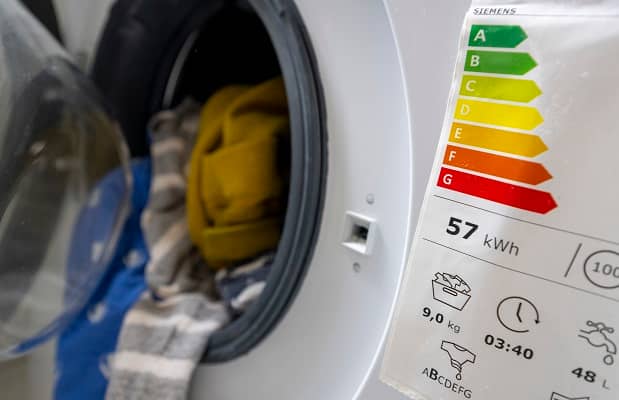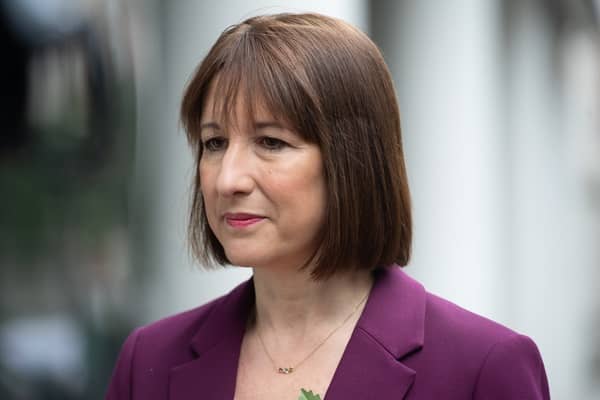Bussiness
Save over £200 a year by ditching energy-wasting habits – London Business News | Londonlovesbusiness.com

Following news energy price rises have pushed UK inflation to the highest it’s been in six months, experts are warning Brits their bad habits could be making bills worse.
Energy experts at Quotezone.co.uk are urging homeowners to adapt lifelong habits in order to cut costs at home, and have shared ways to save up to £231.95 per year.
With temperatures dropping across the country, paying energy bills is likely going to be an issue for many families and households, with many holding off on heating their home in order to stay on budget.
There are simple ways for homeowners to cut back on the cost of heating, but continuing bad habits such as overfilling the kettle and turning on the dishwasher before it’s full can work against efforts and contribute to higher household bills.
In a survey by Quotezone, 70% of respondents said they felt they are overpaying for their energy use, despite prices being lower than the previous year.
Greg Wilson, energy comparison expert at Quotezone.co.uk said: “Homeowners across the UK will have heard the news that the typical energy bill is due to rise by £21 in January.
“With prices expected to remain high into the new year, households will be trying to find ways to cut back. We have done the maths and found that simply trying to avoid bad energy habits could save you up to £230 on your bills each year.
“Really simple things like using cheaper kitchen appliances, only filling your kettle with as much hot water as you need and keeping curtains shut while it’s dark outside can make all the difference when it comes to annual costs.”
Here are ways to cut back on energy:
1.Use cheaper kitchen appliances – save £58 per year
Opting for energy-efficient appliances can certainly save you money in the long run. The most energy efficient choice is a slow cooker, which costs under 5p per hour to run, versus an oven which costs 60p per hour.
Slow cookers have a low wattage, meaning even though it may take a few hours to cook your favourite meal, you will be saving money. An oven may take a total of 45 minutes to heat up and cook a meal, costing you 45p per use, while a slow cooker on for six hours would cost just 29p per use.
Over time, choosing a slow cooker could save you up to nearly £60 per year. If you are in a rush, air fryers are another more energy-efficient alternative to ovens and cost around 42p per hour.
2.Only use your dishwasher when necessary – save £84.24 a year
Your dishwasher consumes a lot of energy and runs for a long period each time it is switched on, making it one of the costliest appliances in the kitchen. The combined energy and water usage for each cycle can cost around 54p.
If you are running your dishwasher everyday without filling it completely, you could be wasting money unnecessarily. Cutting back to running your dishwasher four times a week will save you £1.62 per week, or £84.24 every year.
3.Stop overfilling your kettle – save £10 a year
As one of the most commonly used appliances in the kitchen, kettles contribute to higher energy bills for many households. If you aren’t willing to cut back on the amount of cuppas made each day, making sure not to overfill the kettle can actually help keep costs down. Filling the kettle with more water than you need could be costing you an additional £10 per year in energy.
4.Stop leaving appliances on standby – save £79.71 per year
Most households are oblivious to how much appliances left on standby are actually costing them, but in reality, you could save nearly £80 per year just by switching things off after use.
The most energy draining appliances are electronic devices such as desktop computers, laptops, gaming consoles and TVs, which are almost always left on standby. Other energy sucking appliances like washing machines, tumble dryers, coffee makers and smart speakers should also be turned off after use to help save on energy costs.
5.Stop leaving curtains open after dark
With shorter nights and darker mornings, Brits choosing to keep blinds and curtains open all evening could be losing money without realising. As soon as the sun sets, make sure to close all curtains and blinds in your home. This will prevent warm air from escaping out of the cold windows.
Less energy will then be needed to heat your home in the evenings when your home is at its coldest. Investing in thick, quality curtains can also provide a layer of insulation and help to cut down on energy costs.










